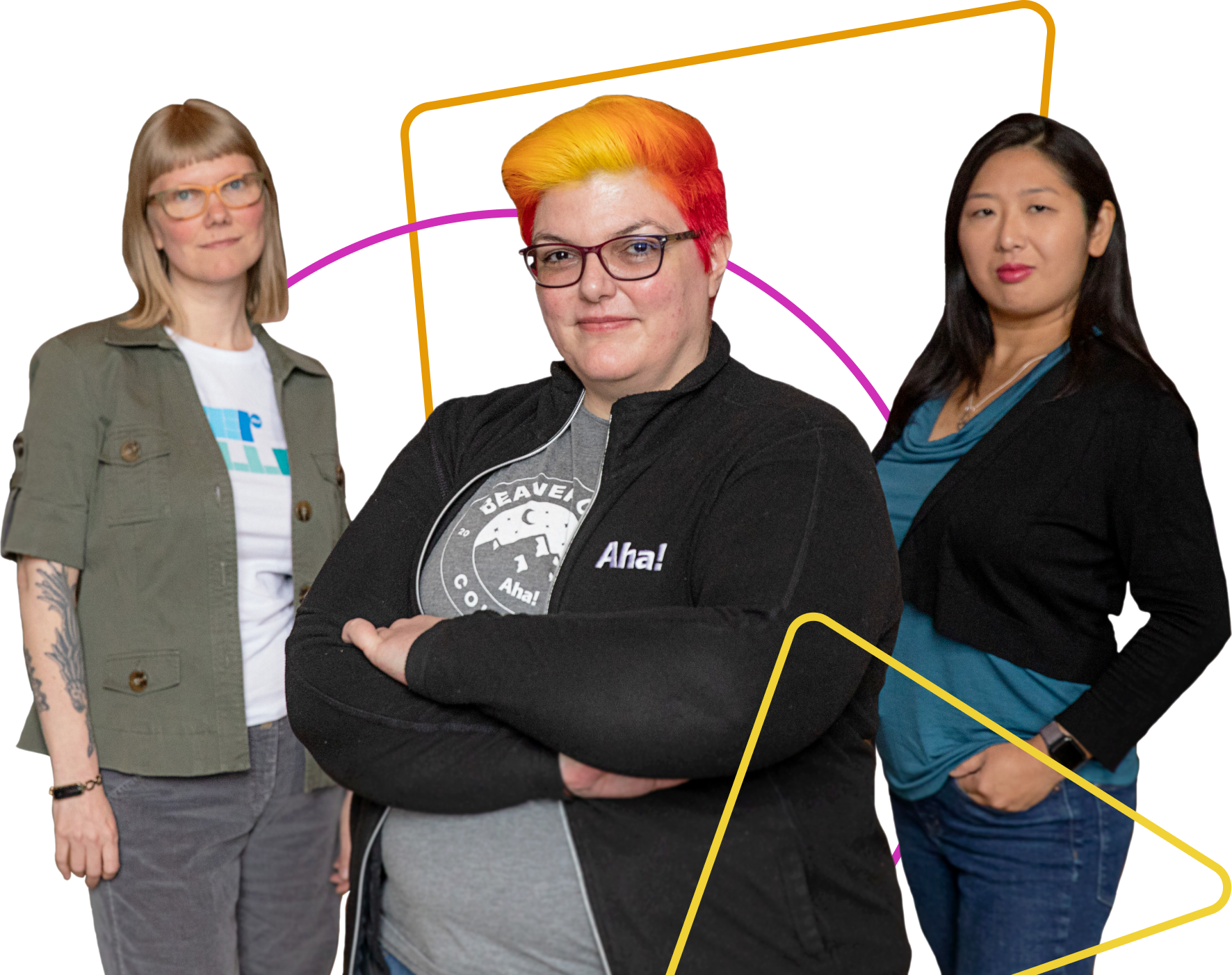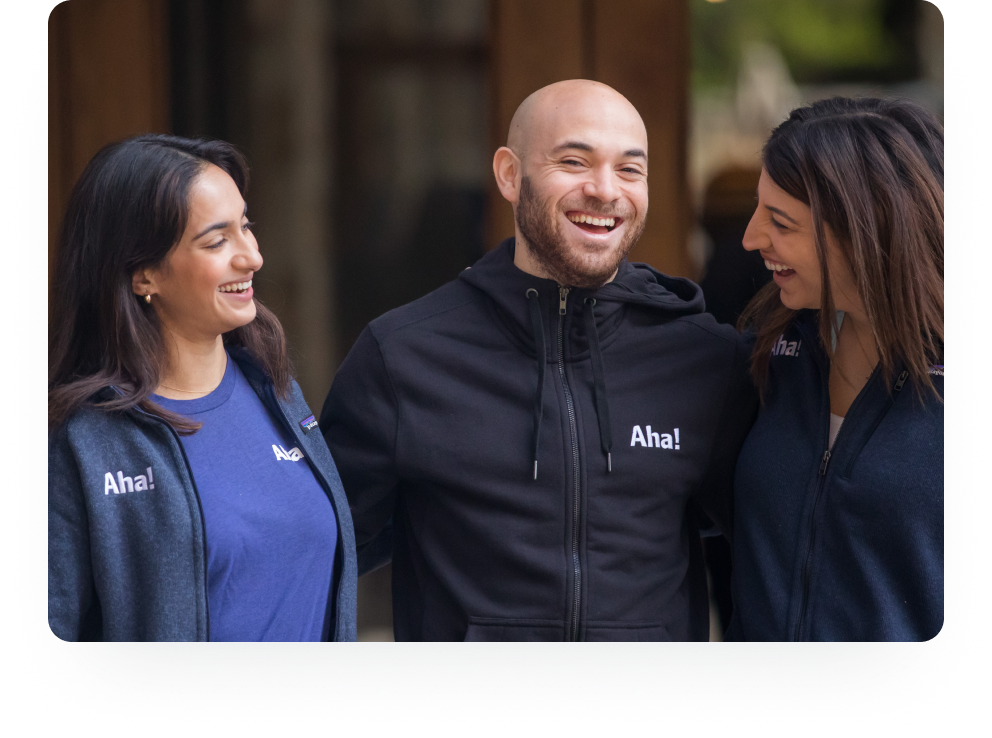
The Responsive Method
A bold approach to business growth
Lasting success and sustainable happiness begin with serving others — even when you are moving fast
Why be responsive?
Our goal at Aha! is to respond to customers' requests as quickly as we can. Because when we do, we have the best chance of interacting with you while you are most focused on the request at hand. We are nearly guaranteed that you will be passionate and thoughtful while your need is still fresh.
As time goes on, though, you will be increasingly distracted as other activities take on greater importance and the urgency of your request will dissipate. So, when you ask us something, we know that we have a small window to serve you. We want to be useful to you right now because we will receive value in return.

A human-centric philosophy
As we started to rapidly expand Aha! in July 2014, we formalized our approach and pioneered a new framework for personal and business success: The Responsive Method (TRM). It is based on our breakthrough success and is grounded in the belief that sustainable, lasting success and happiness originate in respect for and service to others.
TRM is a framework for people and organizations to get the most out of today’s abundant free flow of information — while staying on track toward a goal. You can read more about how you can use TRM to build lovable products and companies in Lovability, the breakthrough book by Aha! co-founder and CEO Brian de Haaff.
8 key principles
TRM is based on eight core ideas that have been refined over the last several years. These principles drive how we operate Aha! and serve customers and employees:
1. Goal-first
If you are going to be interrupt-driven and respond to requests in real time, you need a way to assess the presented needs. You need to know whether you are going to invest real effort. And to do so wisely, you must establish a goal-first approach and a true north for where you are headed. A goal-first approach is about defining your vision and making sure everyone understands it.
2. Go boldly
Creating something positive and lasting is profound. But there is no guide. Courage gives you the confidence to attempt what has not been done before. It empowers you to see the world from different points of view. It gives you the strength to persevere against adversity. And it emboldens you to pursue what is right — especially when the effort requires staying true to your mind and heart.
3. Perfect moments
Perfect moments are different than perfection. Perfection is always right. Perfect moments are times when we reach an ideal state. Too many of us are told these supreme experiences can only happen once in a lifetime, but we believe that they can be achieved every day. To create lasting greatness, have the courage to pursue and realize perfect moments.
4. 'Wow, curious!'
Einstein said, “I have no special talent. I am only passionately curious.” You too should be addicted to asking "why" and finding the answers. Curiosity is fundamental to learning and is a leading indicator of success. If you are curious, you are interested and invested — so you will keep working on a problem until you solve it. At its best, work is a quest for knowledge powered by insatiable curiosity.
5. Interrupt-driven
This is contrary to conventional wisdom, but we think that you and your company should be driven by interruptions. Most people are taught to try to tune out distractions because there are so many urgent, but unimportant requests. Tuning them out is a mistake. Listen carefully to the noise so you can learn to pick out the valuable data.
6. Yea or nay now
You should respond to requests quickly because you cannot afford to keep revisiting them. You need to quickly analyze them as they are received and allow your goal-first strategy to guide you. The key is to digest the information and its importance as quickly as possible so you can get on to the next one and create more value.
7. Transparent
Explaining the “why” makes the “what” simple to digest. This is especially important when saying “no.” The benefit is that if you share your assumptions and motivations and they are wrong, the other person will have a chance to help you see a better way. If you simply provide your answer, you are limiting your opportunity for growth.
8. Kind
People worry that being kind at work is a sign of weakness. Nothing could be further from the truth. Being kind is good for you because it allows you to stay in control, remain humble, and maintain perspective. Although it does not mean that you will always agree with everyone, it does allow you to stay calm and build strong relationships.
Sustainable happiness
TRM determines how interactions play out and will lead to healthy, profitable relationships. Because TRM helps people become better and happier — rather than making their lives the collateral damage of business — it is also a moral framework for success. The TRM approach unclutters our minds and gives us a tool for simultaneously focusing on the big picture and the details that are the difference between a promising business and a lasting one.